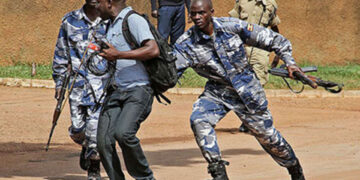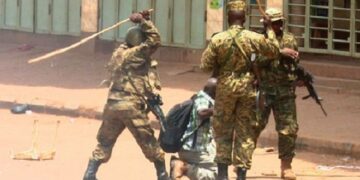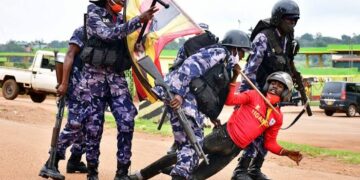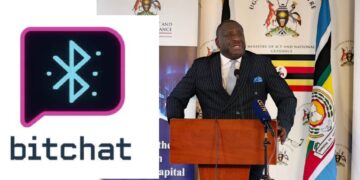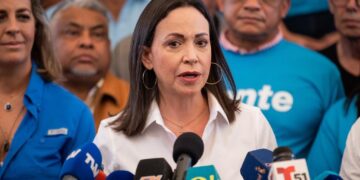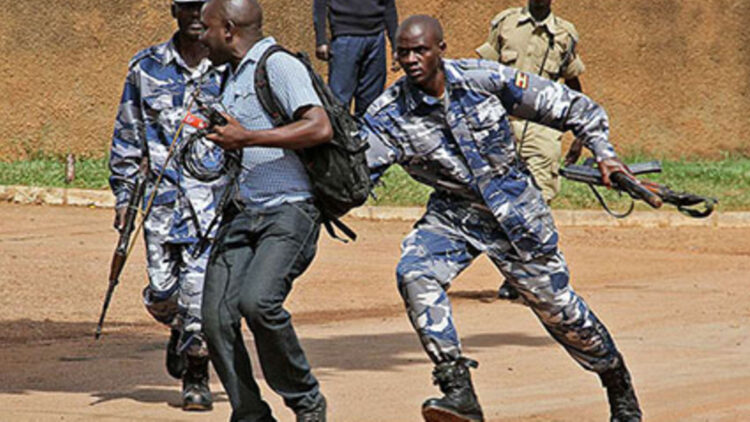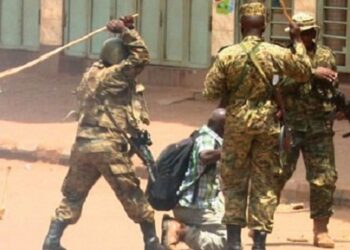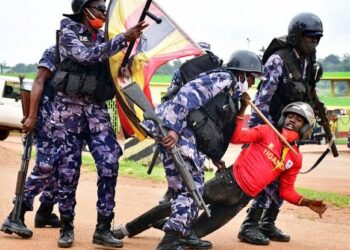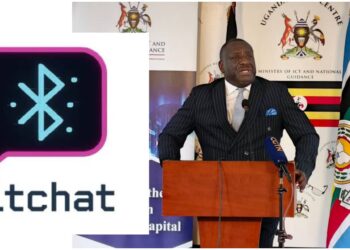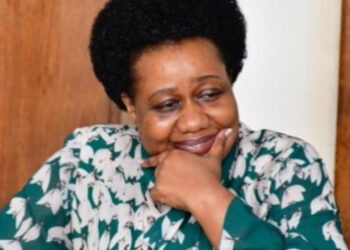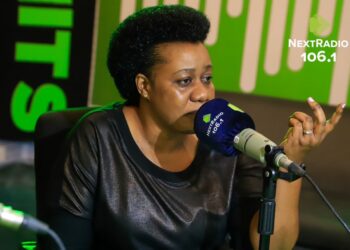By Leonard Kamugisha Akida,
KAMPALA
Ugandan journalists have threatened to boycott coverage of the 2026 general elections unless the Electoral Commission (EC), takes concrete steps to address the longstanding violation of press freedom to guarantee journalists safety and protect their rights during elections.
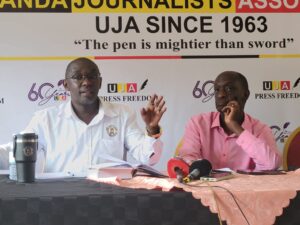
The warning was issued by Uganda Journalists Association (UJA) President Mathias Rukundo during a press freedom dialogue held at Emerald Hotel in Kampala on Saturday, May 3, to mark World Press Freedom Day.
“We will not cover the 2026 general elections if you do not guarantee our security and well-being,” Rukundo declared, adding that the association will not stand by as journalists are brutalized in the line of duty.
Rukundo criticised the EC for turning a blind eye to the growing cases of human rights violations by security forces, especially during election-related coverage.
“The Electoral Commission must take responsibility and engage security agencies and journalists to ensure our safety. If nothing changes, we will announce a total blackout on the Commission’s activities,” he warned.
The event was held under the global theme, “Reporting in the Brave New World: The Impact of AI on Press Freedom.”
In response, EC spokesperson Julius Mucunguzi acknowledged the critical role journalists play in democratic processes.
“We cannot envisage a free, fair, credible, and transparent election without the contribution of a free, independent, responsible and professional media,” he said.
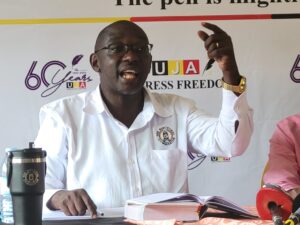
Mucunguzi called for constructive dialogue between journalists, the EC, and security agencies.
“There can be demonstrations, yes—but there can also be discussions and dialogue to move forward,” he said. “If the government could talk to Kony, why can’t journalists talk to the UPDF or Uganda Police? We all belong to this country and should work toward a peaceful and united Uganda.”
He assured journalists that the Commission is working to safeguard all stakeholders during the upcoming elections, including candidates, voters, and media practitioners. He promised that the ugly scenes of the Kawempe North by-election, marked by arrests and assaults on journalists would not be repeated.
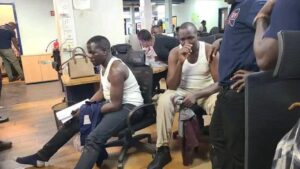
According to a 2024 report by the Human Rights Network for Journalists (HRNJ-Uganda), 110 incidents of human rights violations against journalists were recorded last year, with security forces cited as the leading perpetrators. Between February and March 2025, at least 38 journalists were assaulted during the Kawempe North parliamentary by-election. Victims reported beatings, arbitrary arrests, and destruction of equipment.
One of those victims, Miracle Ibra of Top TV, who was attacked while covering a security confrontation attempting to arrest the National Unity Platform candidate, Elias Nalukoola Luyimbazi, called on the Commission to hold security agencies accountable.
“We are not enemies of the state. We are citizens doing our job,” she said.

Additionally, Richard Baguma, Secretary General of the United Nations Associations (UNA) Uganda, urged journalists to organize and demand their rights. “You must organize, and stop agonizing” he advised.
“I sense some of you expect the government to hand over freedom, but that’s not how it works. Freedoms are not given freely. Look at global civil rights movements. You must organize and stop agonizing. And demand what is rightfully yours,” Baguma said.
While technology took centre stage in discussions, experts warned of new threats. Neolyn Nassuuna, communications executive at Protection Defenders, highlighted risks posed by AI-generated disinformation.
“We must be vigilant about fact-checking and verifying information in this era of deepfakes and manipulated content,” she cautioned.
As the 2026 general elections draw nearer, all eyes are on the Electoral Commission and security agencies to restore trust and ensure a free, safe environment for the press.
